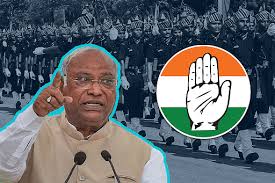Last Updated on April 27, 2024 by News Desk
Introduction:
India’s electoral system stands as a testament to the vibrancy and inclusivity of its democracy. Through a series of landmark judgments, the judiciary has played a crucial role in shaping and strengthening the electoral process. This article explores five pivotal cases that have contributed to the evolution of India’s electoral democracy, emphasizing the significance of judicial interventions in upholding the principles of fairness, transparency, and inclusivity.
Issue:
The judiciary’s role in safeguarding the fundamental right to vote and ensuring its inviolability in the face of electoral laws that may potentially infringe upon it.
Rule:
The judiciary, through cases like Mohinder Singh Gill v. The Chief Election Commissioner, has unequivocally affirmed the right to vote as a fundamental right, balancing electoral regulation with the preservation of citizens’ democratic rights.
Analysis:
Landmark cases such as Association for Democratic Reforms v. Union of India have marked significant milestones in promoting transparency and accountability in the electoral process by upholding the disclosure of crucial information about political candidates, thus empowering voters and fostering greater accountability among candidates.
Conclusion:
Judicial interventions, exemplified by cases like Indra Sawhney v. Union of India, have been instrumental in promoting inclusive representation and protecting minority rights in the electoral arena, ensuring equitable participation for all segments of society.
Judgments like Lok Prahari v. Union of India have emphasized the importance of timely resolution of electoral disputes, bolstering the credibility of the electoral process and upholding the rule of law.
Moreover, cases like Mohd Sattar v. State of Rajasthan have reaffirmed the principle of universal suffrage by affirming the right of prisoners to vote, thereby ensuring that every citizen’s voice is heard, irrespective of their circumstances.
In essence, judicial fortification through these landmark cases has enriched India’s electoral democracy, fostering fairness, transparency, and inclusivity in the electoral process. As India continues its democratic journey, it is imperative to uphold the principles of free and fair elections, guided by the spirit of justice, equality, and democratic participation.
Written by — Athi Venkatesh AVD
























